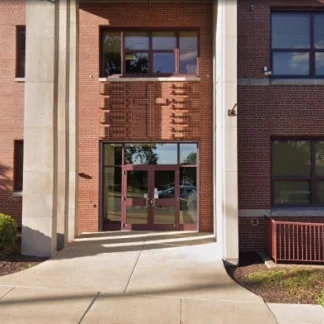UPMC - Magee Women's Hospital
UPMC – Magee Women’s Hospital is a private rehab located in Pittsburgh, Pennsylv...
Human Services Administration Organization (HSAO) is a co-occurring mental health and substance use disorder treatment center in Pittsburgh, PA for adolescents and adults. It offers a range of services in the justice system.
Human Services Administration Organization’s services include:
HSAO provides comprehensive behavioral health treatment services tailored to the needs of individuals involved in the justice system. These services may include assessment, counseling, therapy, and medication management.
Substance abuse treatment services are also available and aim to support individuals in achieving and maintaining sobriety, reducing the likelihood of reoffending. It includes assessment, counseling, group therapy, and referrals to appropriate drug rehab programs.
Case management services provided by HSAO focus on coordinating and connecting individuals involved in the justice system with the necessary resources and support. Case managers work closely with individuals to assess their needs, develop individualized care plans, and link them to appropriate services such as housing assistance, employment support, healthcare, and educational programs.
The Student Assistance Program (SAP) offered by HSAO is designed to provide early intervention and support for students who may be experiencing behavioral health challenges or substance abuse issues. This program involves a multidisciplinary team of professionals who work closely with students, families, and school staff. They provide assessment, counseling, referral services, and educational interventions to address the unique needs of students and promote their well being and academic success.
HSAO also provides juvenile justice related services to support rehabilitation and reintegration. These services may include assessment, counseling, case management, substance abuse treatment, mental health services, and educational support.
Contact us for more information: (412) 884-4500

Connect with HSAO - Human Services Administration Organization by calling their admissions team directly.
(412) 884-4500 Website Get DirectionsResearch clearly demonstrates that recovery is far more successful and sustainable when loved ones like family members participate in rehab and substance abuse treatment. Genetic factors may be at play when it comes to drug and alcohol addiction, as well as mental health issues. Family dynamics often play a critical role in addiction triggers, and if properly educated, family members can be a strong source of support when it comes to rehabilitation.
In individual therapy, a patient meets one-on-one with a trained psychologist or counselor. Therapy is a pivotal part of effective substance abuse treatment, as it often covers root causes of addiction, including challenges faced by the patient in their social, family, and work/school life.
Life skills trainings involve all the skills a person must have in order to function successfully in the world. These include time management, career guidance, money management, and effective communication. Truly successful addiction recovery is based on the ability to not only live substance-free, but to thrive. Life skills teaches the practical necessities of functioning in society, which sets clients up for success in life, and therefore sobriety.
In individual therapy, a patient meets one-on-one with a trained psychologist or counselor. Therapy is a pivotal part of effective substance abuse treatment, as it often covers root causes of addiction, including challenges faced by the patient in their social, family, and work/school life.
Life skills trainings involve all the skills a person must have in order to function successfully in the world. These include time management, career guidance, money management, and effective communication. Truly successful addiction recovery is based on the ability to not only live substance-free, but to thrive. Life skills teaches the practical necessities of functioning in society, which sets clients up for success in life, and therefore sobriety.
Life skills trainings involve all the skills a person must have in order to function successfully in the world. These include time management, career guidance, money management, and effective communication. Truly successful addiction recovery is based on the ability to not only live substance-free, but to thrive. Life skills teaches the practical necessities of functioning in society, which sets clients up for success in life, and therefore sobriety.
UPMC – Magee Women’s Hospital is a private rehab located in Pittsburgh, Pennsylv...
Spectrum Family Network is a private rehab located in Pittsburgh, Pennsylvania. ...
Western Psychiatric Institute – Addiction Treatment Program is a private rehab l...
Accessible Recovery Services - Highland Park (ARS) offers medically assisted tre...